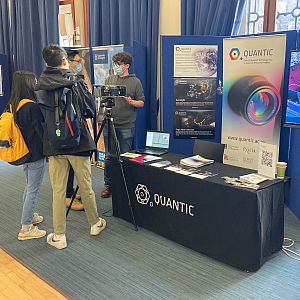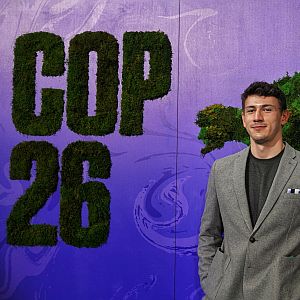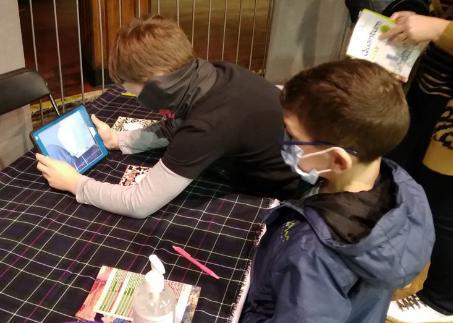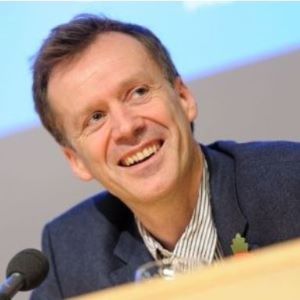QuantIC's involvement for a sustainable future - COP 26
Published: 15 November 2021
Read More
The team at QuantIC were in full swing during COP26, showcasing new quantum imaging technology that could provide solutions for reducing climate change.
The University of Glasgow Optics Group demonstrated the GasSight camera at a Sustainable Solutions Showcase for Science & Innovation day on the 9 November. Attracting interest in visualising methane gas at short range and promoting QuantIC’s single photon lidar gas detection from the University of Bristol which is used in QLM Technology’s gas camera.

QuantIC researcher, Vincenzo Pusino, and Business Development Manager, Chris Payne-Dwyer hosted a stand in the green zone at the Glasgow Science Centre engaging with the public and industry through the QuantIC augmented reality app. Highlighting how quantum imaging technology can ‘make the invisible, visible’ and showcasing a range of quantum imaging demonstrators that could help reduce our environmental impact on the world around us.

Vincenzo ran a similar stand earlier in the month at the Institute of Physics Big Bounce at the Glasgow Barrowland Ballroom under the Quantum City outreach arm of the National Quantum Technology Programme. Families gathered for celebration of curiosity and discovery and discovered how physics has a roll to play in reducing the impact of climate change.
Technology Scotland ran a social media campaign promoting how its members themselves are making small changes to help the environment. QuantIC Principal Investigator, Professor Miles Padgett, contributed to this and QuantIC featured a blog piece for their members Journey to a Sustainable Future.
"To reduce my own carbon footprint, I have massively reduced travel to meetings and conferences. Zoom provides an alternative to a daytrip to London and international trips abroad. This is evidenced by the fact that I no longer have a frequent flyer card"
More information on how quantum imaging technologies can help with the climate change agenda can be found here.
First published: 15 November 2021



